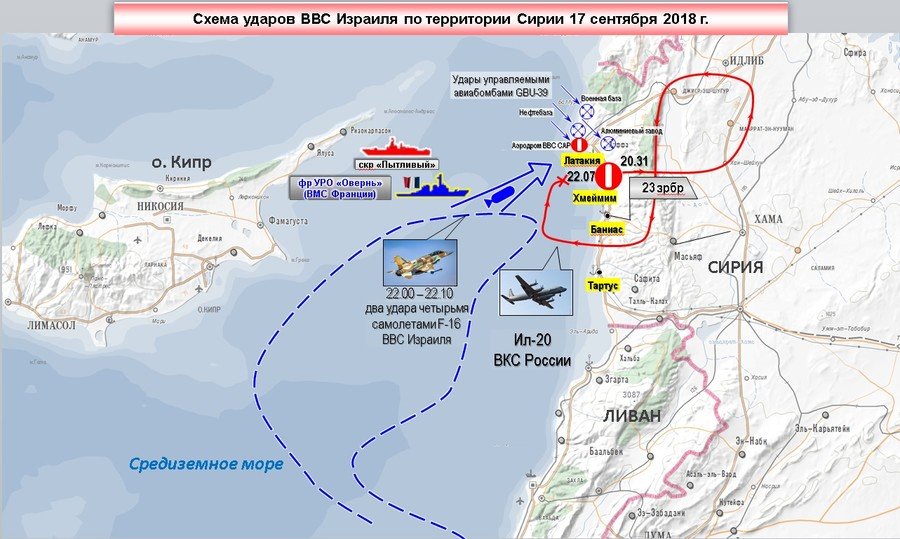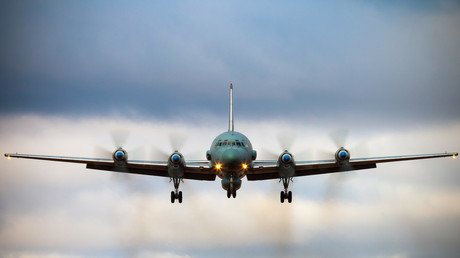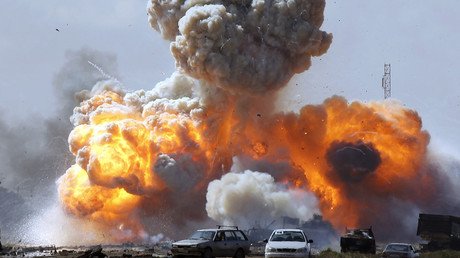Will Russia-Israel ties suffer after downing of Il-20 military plane off Syrian coast?
Moscow and Tel Aviv have long enjoyed fairly good ties despite the turmoil in the Middle East but these relations are at risk as Russia blames Israel for the downing of its warplane off the Syrian coast and the death of its crew.
Although the plane was technically shot down by a Syrian missile, Russia made it clear who it blames for the tragedy, saying that Israeli pilots used the Russian Il-20 as cover.
The Middle East is historically a place of bitter rivalries. Tensions soared after the Arab Spring brought more havoc to an already-complex region, riddled with competing interests and the clashing ambitions of various actors, large and small. Nevertheless, Russia and Israel had always managed to maintain good relations.
This year alone President Vladimir Putin met Israeli Prime Minister Benjamin Netanyahu three times, and on each occasion the media got few details from closed-door discussions. Through delicate, behind-the-scenes diplomacy Moscow maintained close, working relations with Israel. The fact that Israel is one of the closest allies of the US was never an issue for Moscow. Russia itself kept developing ties with Turkey and Iran, Israel’s arch-nemesis, while managing to address Israel’s concerns.
For Russia, Israel is not only an important, geopolitical partner with presumed nuclear capabilities, situated in the heart of the world’s most turbulent region, it’s also home to about 1.3 million people born in post-Soviet countries. This large diaspora plays a significant role for Russia when it tailors its approach to Tel Aviv.
Even the war in Syria, where Israel – in the hope of curbing Iranian influence – supported and armed controversial anti-government militants, didn’t result in a serious crisis in relations with Russia.

Over the course of the conflict, the IDF had conducted numerous airstrikes against targets in Syria and even launched missiles at Syrian jets. Each attack was strongly condemned by both Syria and Russia who had been pointing out that any military incursion into the country without government and UN approval is illegal. Moscow’s lack of a more robust reaction was part of a ‘gentlemen’s agreement’ with Israel, said Gevorg Mirzayan, an expert with the think-tank ‘Russian council for international affairs.’
Last night, an IDF aircraft fired towards several armed terror operatives in the southern Syrian Golan Heights. Following searches this morning, explosive belts and an AK-47 assault rifle were found in the area
— Israel Defense Forces (@IDFSpokesperson) August 2, 2018
But the raid on Latakia and the collateral damage in the form of a downed Russian military plane can inflict grave damage on relations between Israel and Russia. Moscow may perceive it as a violation of this agreement or even a premeditated demonstration that Russia’s help to rebuild Syrian air defenses poses a threat to Russia itself, the expert told RT. “Israel takes a serious risk here, because it needs this gentlemen’s agreement more than we do, especially now that the war winds down.”
Israel stands firmly against any strengthening of Turkish and Iranian grips over the region, so its recent actions may be an attempt to remind everyone that the Syrian crisis has other stakeholders involved. Just the day before the tragic incident with the Russia plane, Putin and his Turkish counterpart Recep Tayyip Erdogan reached a settlement on the situation around Idlib, the last militant stronghold beyond the control of the Syrian government.
Lots of ways for Russia to hurt Israel
Russia possesses plenty of direct and indirect ways to hurt Israeli interests, if it chooses to pursue such options, says Sergey Balmasov from the Institute of the Middle East. After the incident Moscow will “almost certainly” finalize the delivery of the S-300 anti-aircraft system, which it sold to the Syrian side earlier. It may go as far as to provide Russian troops to man those systems, the expert suggested: “Russia’s decisions will affect how comfortable the Israeli Air Force would be in Syrian airspace.”
Other options range from covertly supplying Russian arms to parties that Israel sees as its enemies, like Iran or Lebanon’s Hezbollah, threatening to shoot down any Israeli plane approaching Syrian airspace or even attacking military targets in Israel proper, the experts suggested. Of course, such an escalation would benefit neither Israel nor Russia, and the ball is now in Israel’s court to prevent it.
The two sides are probably discussing the incident unofficially at this stage. But how much of any explanations or apologies Israel may offer to Russia would go public is a different matter altogether. The fact that Russia went public with its accusations so quickly “shows how much Russia is outraged with the irresponsible actions” of the Israelis, told RT Nikolay Surkov from the Institute of World Economy and International Relations.
Mirzayan said Israeli Prime Minister Benjamin Netanyahu could stop the situation from festering by publicly acknowledging a mistake and offering compensation. If Israel “keeps silence, disclaims responsibility for this or blames the Syrians, the consequences may be grave for Israel,” he said. So far the IDF said the responsibility for the “regrettable” loss of the Il-20 is not theirs, but Syria’s, Iran’s and Hezbollah’s.
Russian-Israeli ties too precious to harm?
While Moscow has described the Israeli actions as “reckless” and “unfriendly,” and the Defense Ministry unequivocally stated that the Israeli jets had deliberately used the plane as cover, Putin later somewhat cooled the tension, saying that the Il-20 downing looks more like a tragic accident than anything else. Some believe this is an indication that the incident could blow over quickly with relatively little harm to relations.
“Everything has been done to prevent incidents like this,” said Nikolay Surkov, a senior researcher at the Institute of World Economy and International Relations in Moscow. But the fact that sometimes such things happen is understood in both the Russian and the Israeli capitals, he believes. With the tight partnership between the two countries, neither will benefit from souring relations over the tragedy.
“I believe we are looking at an accident,” said Grigory Lukyanov, a scholar from the Russian National Research University Higher School of Economics. “Israel wasn't deliberately aiming to kill Russian servicemen or destroy Russian material.” While he believes this case will cause heated public debate about the state of relations between the two countries, both are ultimately too interested in maintaining their cooperation on pressing issues to let this incident ruin it. Those issues include the conflict in Syria and relations between Israel and Iran, where Russia finds itself in the position of a mediator.
Think your friends would be interested? Share this story!















